Our Publications
The Center for Development Policy is an independent research organization dedicated to addressing complex policy challenges through rigorous analysis and evidence-based solutions. We collaborate with policymakers, academic institutions, and community stakeholders to produce high-quality research that informs effective policy development.
Our work spans policy briefs, in-depth reports, position papers, and comprehensive analyses that drive meaningful change. By bridging the gap between research and policy implementation, we strive to create practical solutions that respond to society’s most pressing issues.
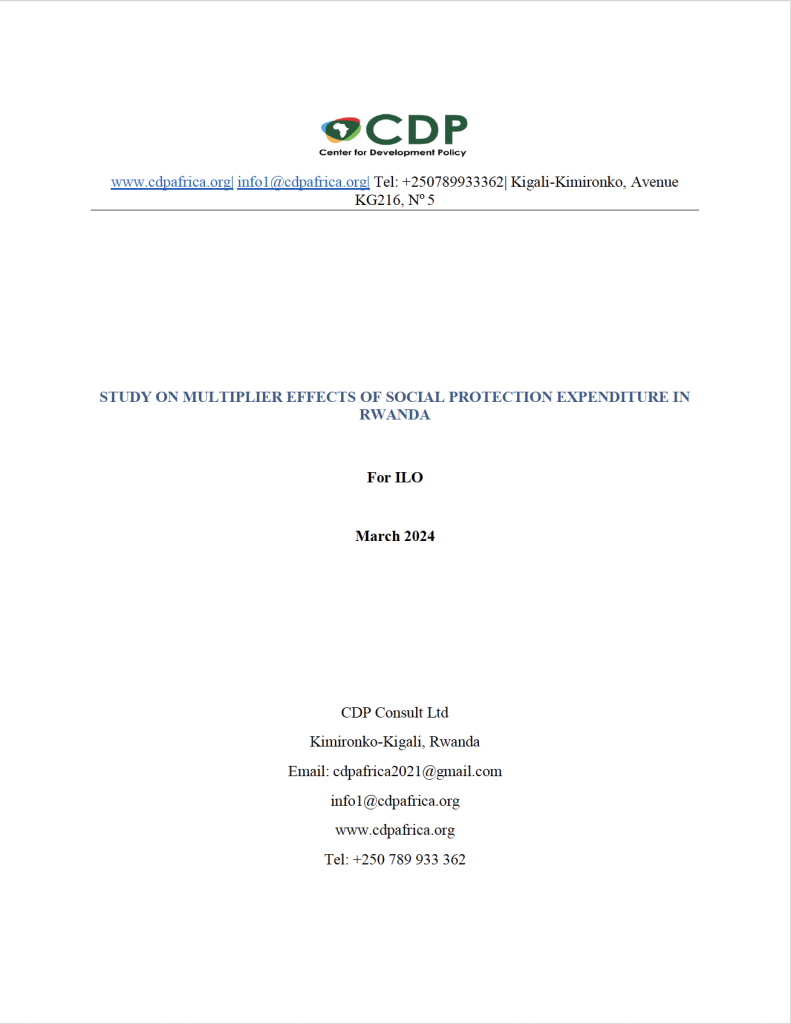
Study on Multiplier Effecta of Social Protection Expenditure in Rwanda
The Social Security (Minimum Standards) Convention No. 102 adopted in 1952 established a worldwide-agreed minimum standards for social security relating to medical care, sickness, unemployment, old-age, employment injury, family, maternity, invalidity and survivors’ benefits. The Convention stipulates guidelines for countries to achieve the tripartite objective of raising the percentage of the population covered by social protection schemes, level of minimum benefits to be secured to protect persons and streamlining conditions and period of entitlement to benefits (ILO, 1952).
Author: CDP Africa
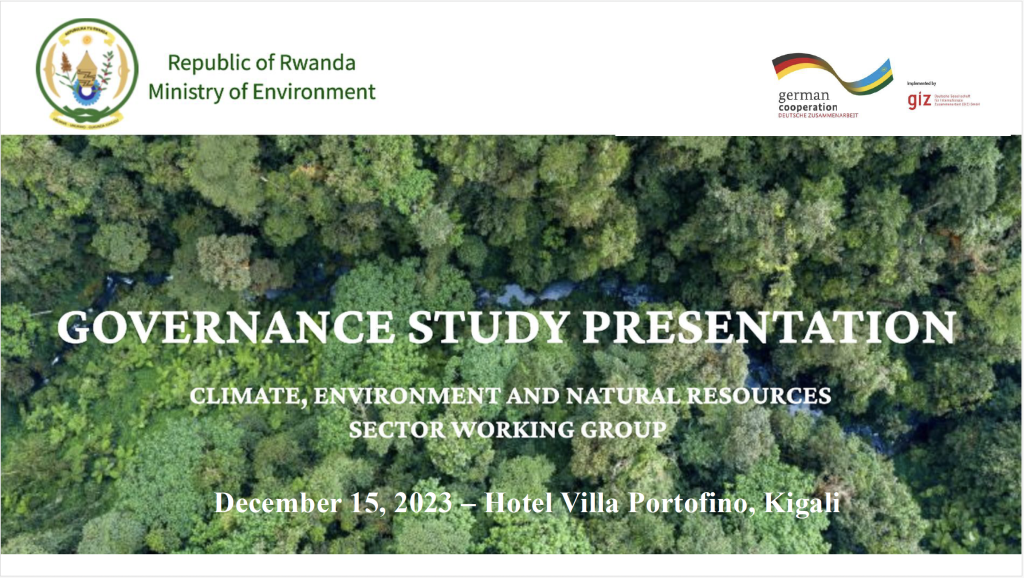
Climate, Environment and Natural Resources sector working group
This study reviewed how Rwanda’s Climate Change, Environment, and Natural Resources Sector Working Group (CENR-SWG) and its Thematic Working Groups function. It calls for stronger coordination, inclusive participation, evidence-based decision-making, and sustainable financing. Key recommendations include establishing a dedicated secretariat, creating a basket-funding mechanism, strengthening technical capacity, and developing a national policy framework to enhance effectiveness and alignment with Rwanda’s climate and development goals.
Author: Edward Kadozi, PhD
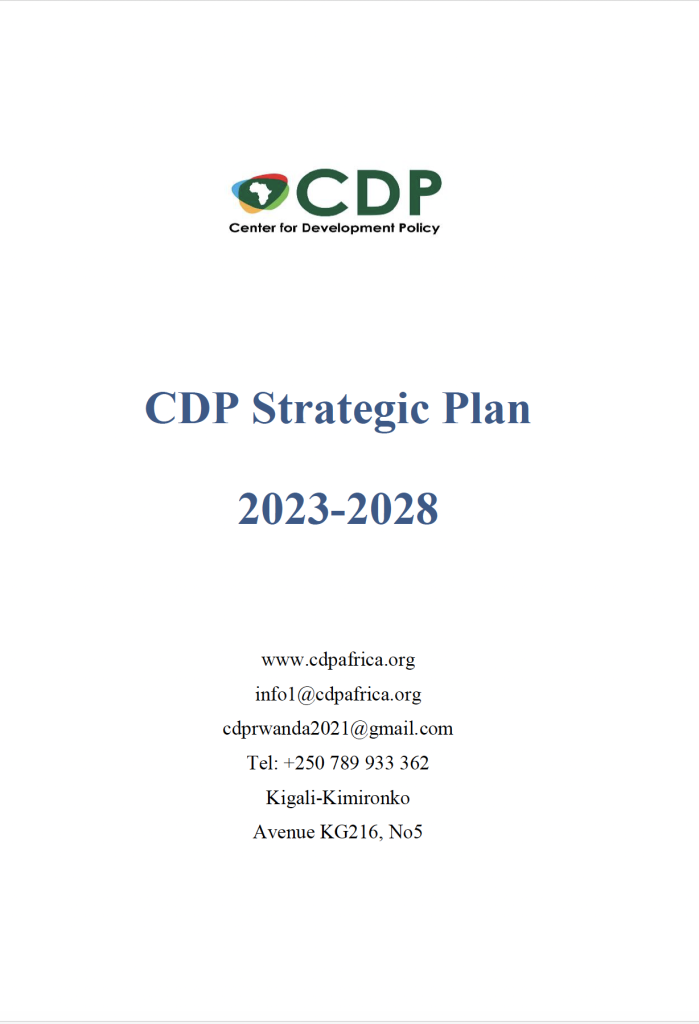
CDP Strategic Plan 2023-2028
The Center for Development Policy (CDP) is a Pan-African and non-partisan think tank headquartered in Rwanda and registered with the Rwanda Governance Board (RGB). The Centre exists to contribute to the development of African countries through policy analysis and capacity strengthening. CDP prioritizes indigenous evidence-based development solutions and promotes local and empirically tested interventions that address the real needs of Africa’s population and contribute to the continent’s inclusive development.
Author: CDP Africa
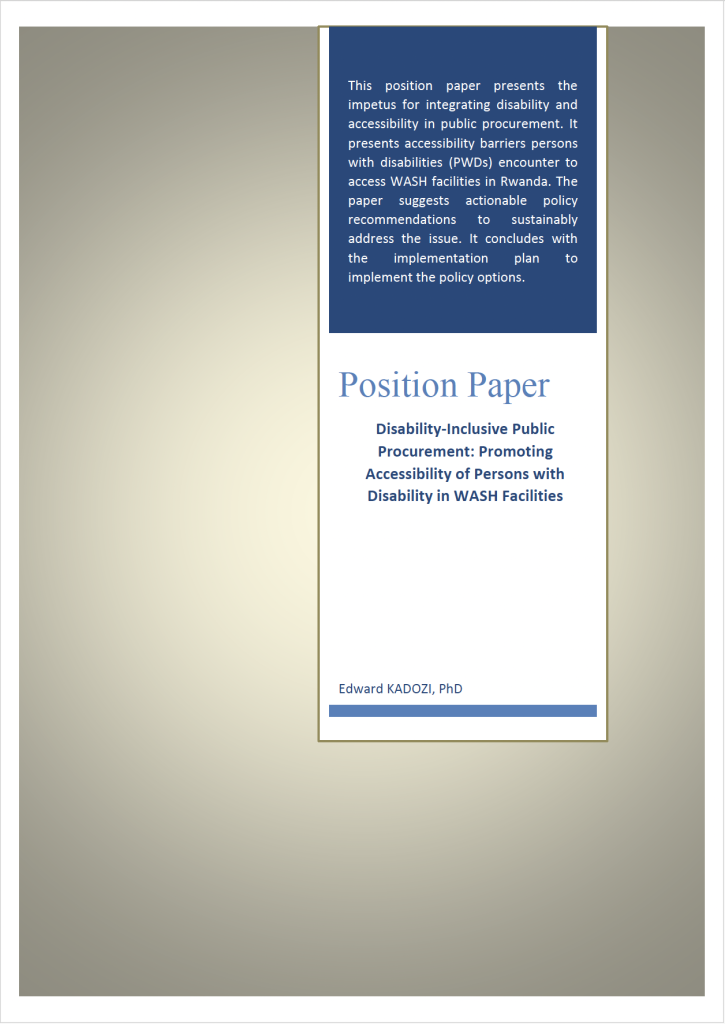
Disability-Inclusive Public Procurement: Promoting Accessibility of Persons with Disability in WASH Facilities
Author: Edward Kadozi, PhD
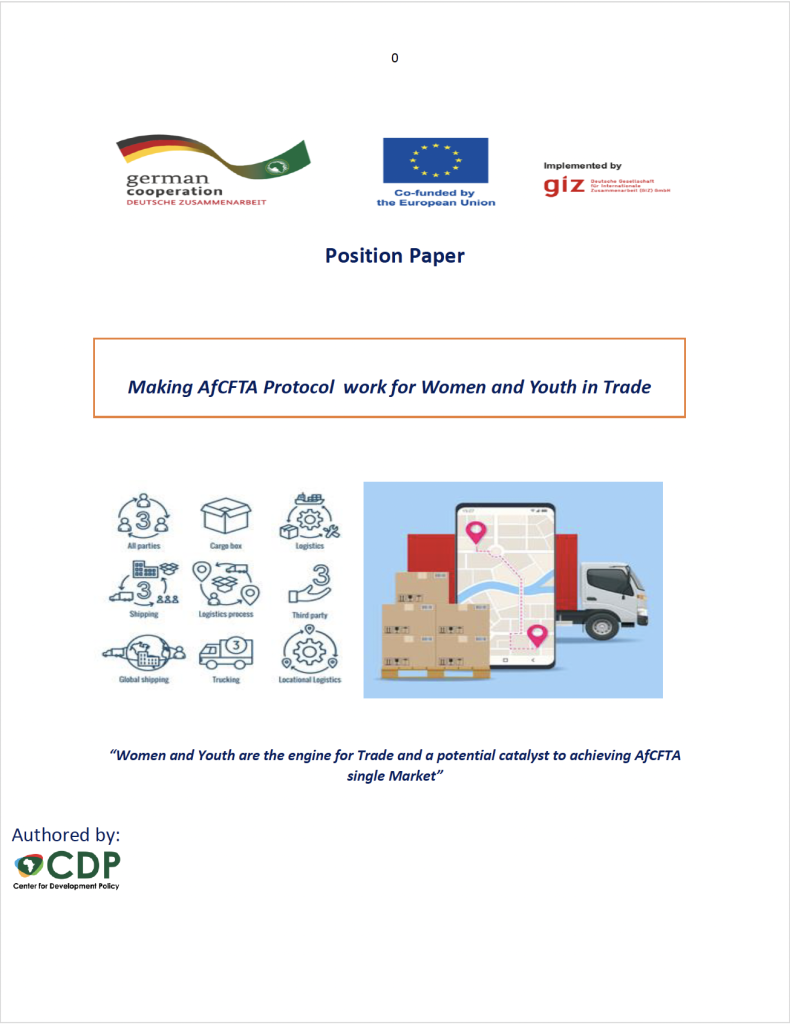
Making AfCFTA Protocol work for Women and Youth in Trade
This position paper advances a critical impetus for integrating the needs and potentials of women and youth in trade for Rwanda team of negotiation during upcoming negotiations for the women and youth Protocol under AfCFTA Phase II&III. Women and youth-led businesses in Africa, and Rwanda in particular play a significant role in economic transformation and poverty reduction.
Author: CDP Africa
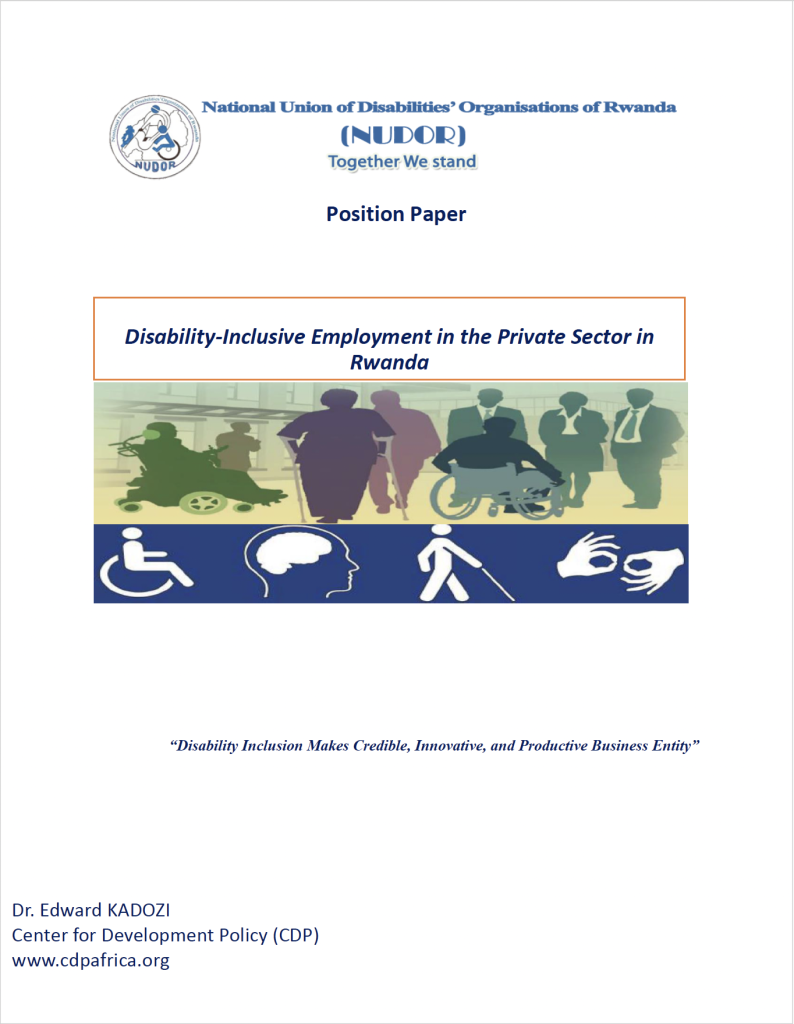
Disability-Inclusive Employment in the Private Sector in Rwanda
This position paper advances a critical impetus for promoting the employability of persons with disability (PwDs) in the private sector in Rwanda. Is it socially and economically relevant to promote disability-inclusive employment in the private sector? If the answer is YES, by doing so, we are enormously contributing to Rwanda’s inclusive development through the disability-inclusive employment, which in turn increases the innovation, productivity and competitiveness of the business community.
Author: Edward KADOZI, PhD
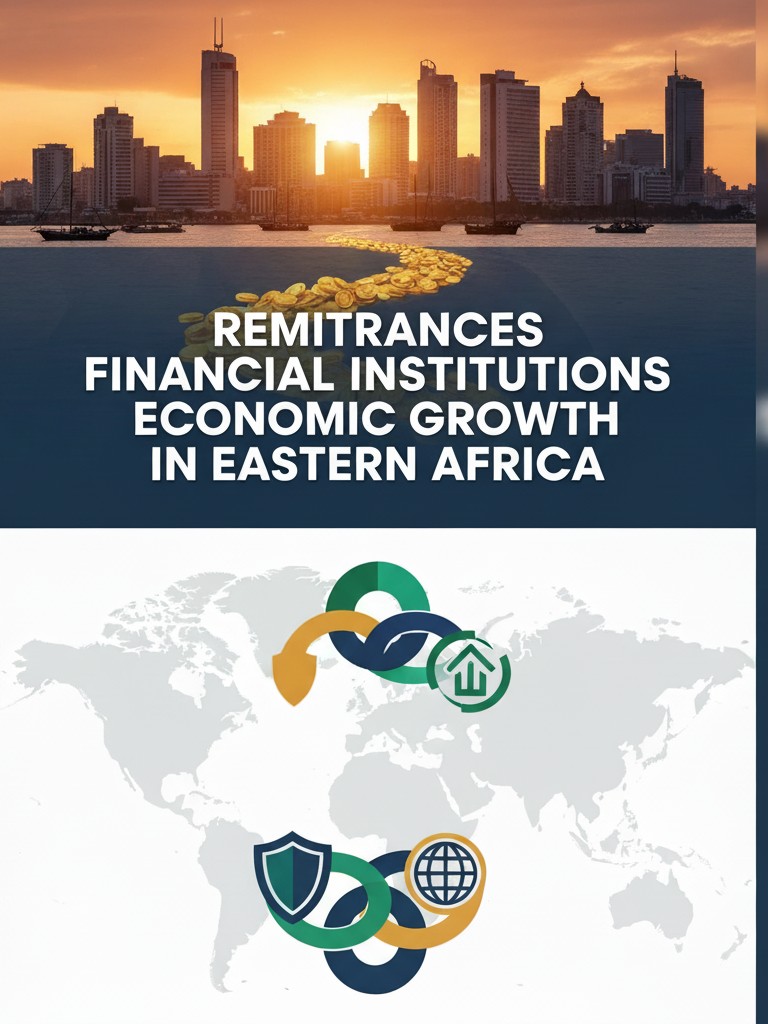
Remittances, Financial Institutions and Economic Growth in Eastern Africa
This paper investigates remittances, financial Institutions and economic growth in Eastern Africa, focusing on the interaction between remittances and financial institutions, as well as the role of institutional quality and governance. Remittances are a crucial financial flow for many developing economies, and their potential to contribute to economic growth is significant.
Author: KADOZI Edward | MUTABARUKA Alphonse | MUGISHA Emmanuel
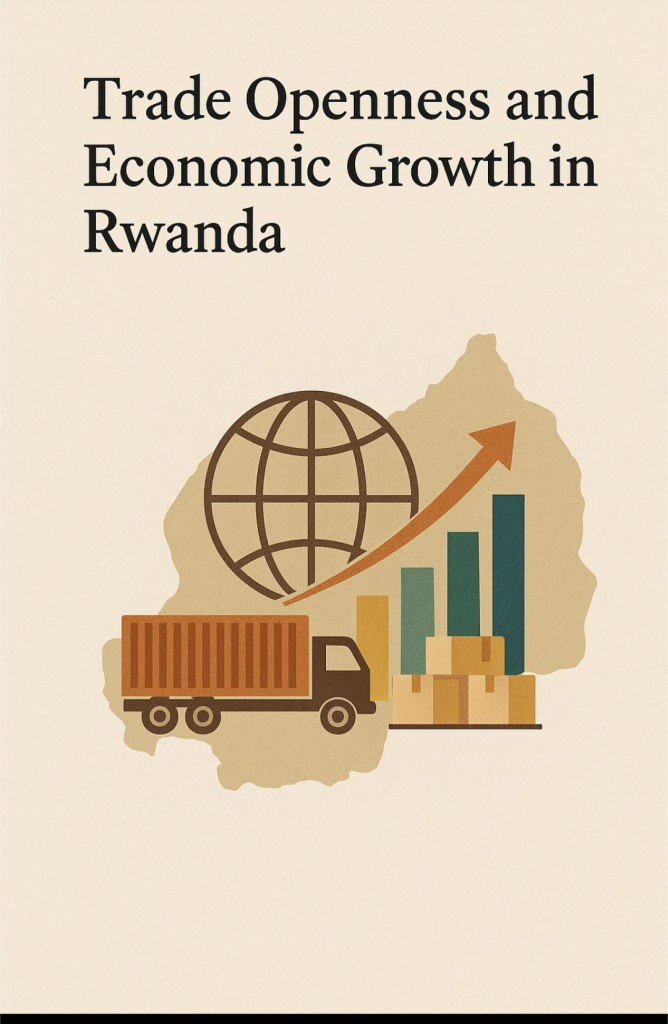
Trade Openness and Economic Growth in Rwanda
This paper empirically examines the impact of trade openness on the economic growth in Rwanda for the period between 1980 and 2022. The analytical framework of this study is embedded in the theoretical and empirical debate between three dominant theoretical approaches about trade openness and economic growth: the Ricardian- Hecksher-Ohlin trade Theory and Endogenous Growth Theories.
Author: Edward KADOZI, PhD | Wilberforce Nuwagira, Ph.D | Emmanuel Mugisha
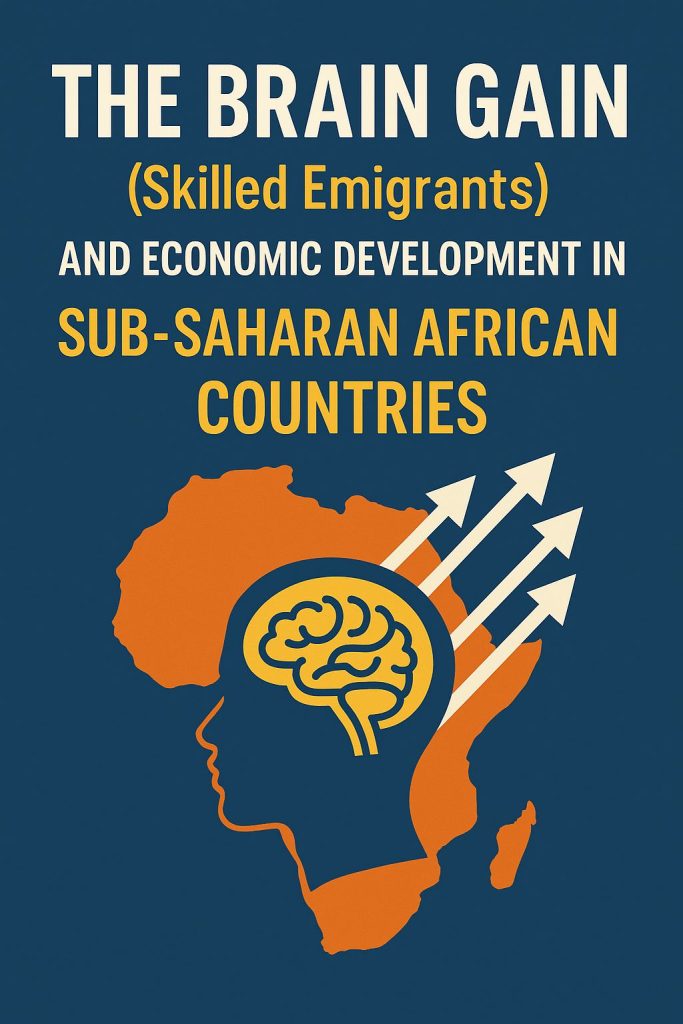
The Brain Gain (skilled emigrants) and Economic Development in Sub-Saharan African
The development impact of international migration continues to attract development policy and scholarly attention. This paper examines the development impact of skilled migration for 38 Sub- Saharan African (SSA) countries between 1980 and 2019.
Author: Edward Kadozi (PhD)1| Ggombe Kasim Munyegera (PhD)2| Kabano Ignance (PhD)3
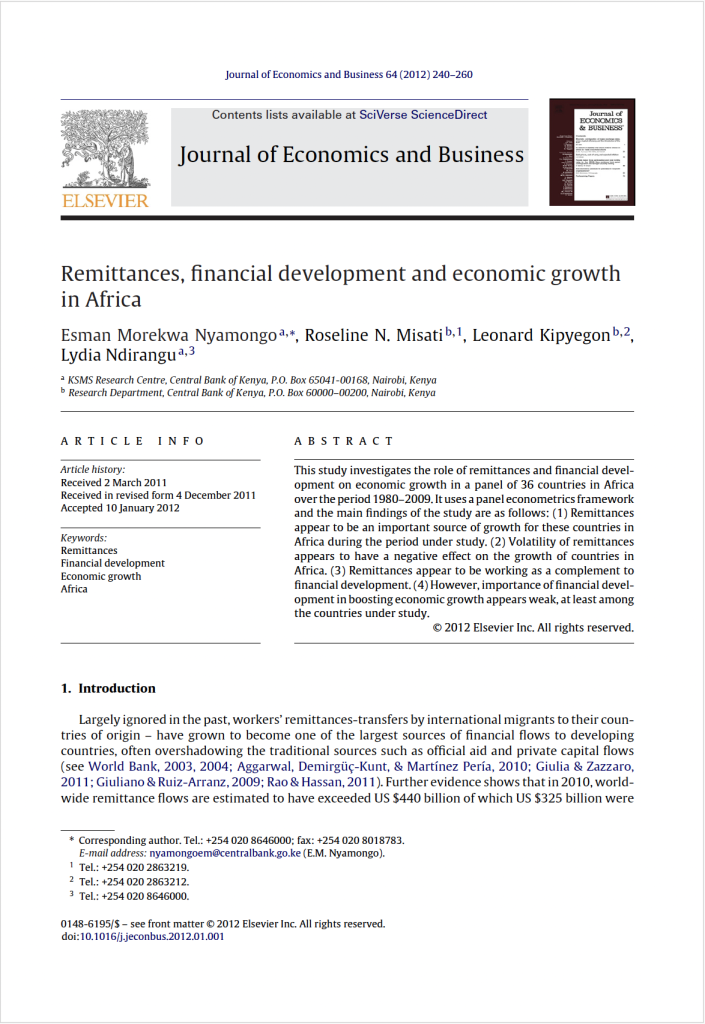
Remittances, financial development and economic growth in Africa
This study investigates the role of remittances and financial development on economic growth in a panel of 36 countries in Africa over the period 1980–2009. It uses a panel econometrics framework and the main findings of the study are as follows: (1) Remittances appear to be an important source of growth for these countries in Africa during the period under study. (2) Volatility of remittances appears to have a negative effect on the growth of countries in Africa.
Author: Esman Morekwa Nyamongoa | Roseline N. Misatib,1 | Leonard Kipyegonb,2 | Lydia Ndirangua,3
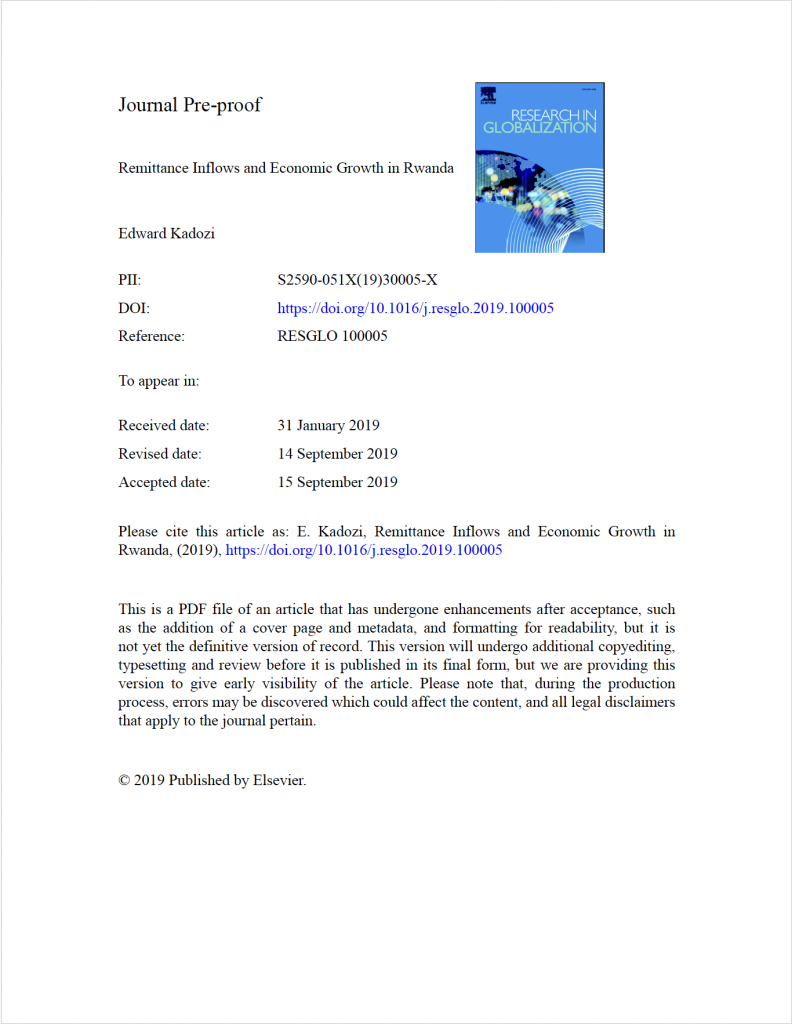
Remittance Inflows and Economic Growth in Rwanda
This paper examines the impact of remittance inflows on economic growth in Sub-Saharan Africa (SSA) countries and Rwanda in particular for the period between 1980 and 2014. It explores whether the growth impact of remittances is conditional on the institutional and development factors in SSA countries. The analytical framework of this study is embedded in the debate between two dominant theoretical approaches about the growth effect of remittances; the national accounts and endogenous growth models.
Author: Edward Kadozi, PhD | Safari Vincent
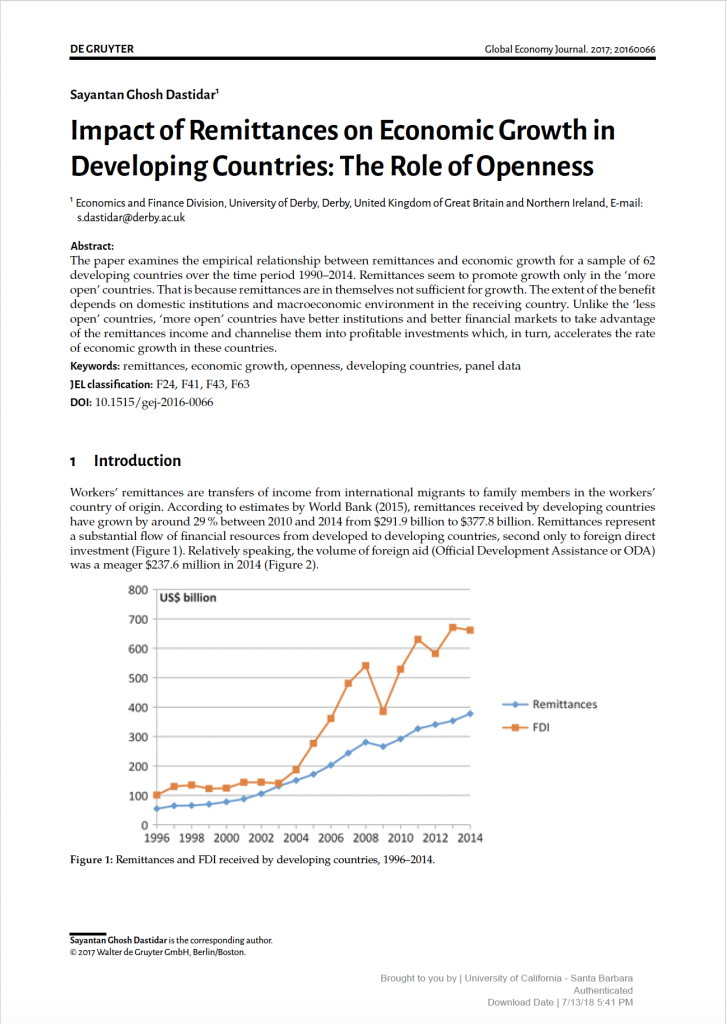
Impact of Remittances on Economic Growth in Developing Countries: The Role of Openness
The paper examines the empirical relationship between remittances and economic growth for a sample of 62 developing countries over the time period 1990–2014. Remittances seem to promote growth only in the ‘more open’ countries. That is because remittances are in themselves not sufficient for growth. The extent of the benefit depends on domestic institutions and macroeconomic environment in the receiving country.
Author: Sayantan Ghosh Dastidar

